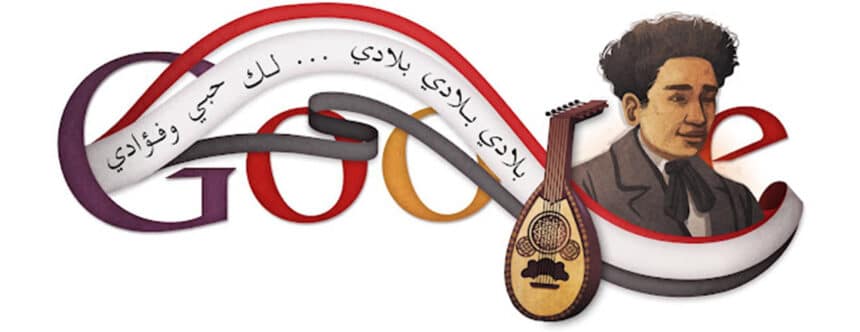Image Courtesy: Google Doodle
Sayed Darwish (17 March 1892 – 15 September 1923) was an Egyptian composer, singer, and songwriter who is considered one of the most important figures in the development of modern Egyptian music.
Life and Career
He was born on 17 March 1892, in Alexandria, Egypt. He was born in the family of musicians and grew up in a musical environment. Sayed Darwish started his career as a singer and performer, but he soon turned his attention to composing music. He wrote more than 500 songs in a wide range of styles, including classical Arabic music, folk music, and patriotic songs. His music was characterized by its simplicity, melody, and emotional expressiveness, and he is widely regarded as the founder of the modern Egyptian song.
One of Sayed Darwish’s most famous compositions is “Bilady, Bilady, Bilady”, which became the national anthem of Egypt in 1979. He also wrote many other patriotic songs that expressed the hopes and aspirations of the Egyptian people, including “Zuruni Kulli Sana Marra” (“Visit Me Every Year”), which became a popular song during the annual pilgrimage to Mecca.
Sayed Darwish was a vocal advocate for Egyptian independence and his music played an important role in the nationalistic movements of the early 20th century. He died at the young age of 31 on 15 September 1923 due to complications from surgery in 1923, but his legacy continued to influence Egyptian music and culture for generations to come. He is widely regarded as one of the most important cultural icons in Egypt’s history.
Award and Legacy
Sayed Darwish’s contributions to Egyptian music and culture have been widely recognized through various awards and honors. In 1954, he was posthumously awarded the “First Class Medal of Art” by the Egyptian government, and in 1992, he was honored with a postage stamp bearing his image. His music continues to be celebrated and performed to this day, and his legacy as a pioneer of modern Egyptian music remains strong.
In addition to his musical contributions, Sayed Darwish’s advocacy for Egyptian independence and his use of music to express nationalistic sentiments played an important role in the country’s history. He was a symbol of the struggle for independence and his music became an important part of the cultural identity of the Egyptian people.
Today, Sayed Darwish is regarded as a national treasure in Egypt, and his legacy is celebrated through concerts, festivals, and other cultural events. His music continues to inspire new generations of musicians and artists, and his influence can be seen in many aspects of contemporary Egyptian culture.
On 17 March 2011, Google celebrated Sayed Darwish’s Birthday with a doodle.

